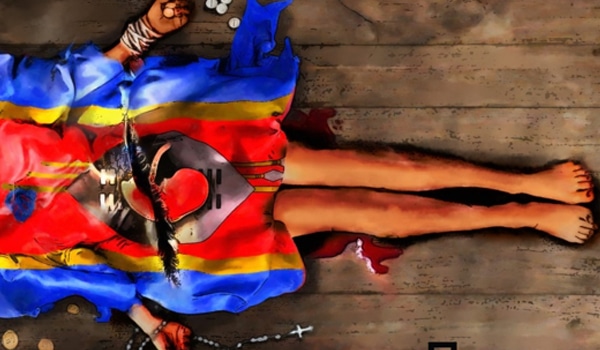
“On 22 May 2000, Elizabeth Matimba and Joyce Mdluli sat on benches in the High Court of Swaziland (eSwatini) in Mbabane and heard Judge Thomas Masuku denounce them for the crime of abortion. Matimba had, in 1998, taken her pregnant daughter to Mdluli, then a nurse at Mbabane Government Hospital, and asked that she terminate the pregnancy. Mdluli obliged. For this crime, the women were both sentenced to five years in jail.
“The case later went to the appeal court, where the judge spoke out strongly against abortion. He nevertheless reduced Matimba’s sentence to three years. The nurse’s conviction and sentence were set aside on the grounds that the Crown had failed to prove her guilt beyond reasonable doubt.
“In eSwatini, women cannot of their own free will terminate a pregnancy. It is a crime. That, of course, changes nothing. They go ahead and procure abortions anyway.”
This article reviews how the courts, the main hospitals who treat cases of incomplete and botched abortions, and a range of NGOs who consider themselves working for girls’ and women’s health and rights, respond to the issue of unsafe, illegal abortions (or not).
One doctor at a major hospital, Raleigh Fitkin Memorial Hospital in Manzini, the main city, says they see an average of four women a day for treatment of incomplete or botched abortions, and at some times of the year as many as ten per day. The abortion may have been induced or spontaneous but because abortion is illegal, they choose not to ask too many questions. They just patch them up. Some come just when complications begin, some when they have lost a lot of blood and need a transfusion and some when they’ve developed an infection and need to be admitted…. While he is not at liberty to share specific numbers, this doctor said says he knows that many women die each year owing to complications stemming from incomplete abortions, in major hospitals and elsewhere, and one description of a dangerous procedure by a traditional healer was certainly life threatening.
The 2005 Constitution allows abortion if there is a serious threat to the woman’s health, or the child will be seriously handicapped if born or when the pregnancy is the result of incest or rape. But Raleigh Fitkin Memorial Hospital rarely sees such cases, if any. Swaziland Action Group against Abuse, an organisation that helps abused children gain access to justice, says in recent times no pregnant minors have been helped by them to get an abortion. They won’t say why. Similarly, Save the Children eSwatini has not helped any minor obtain an abortion. Indeed, in a 2018 case of rape of a minor, the police insisted the pregnancy continued so they could find the rapist.
The group Women and Law-eSwatini have also never taken up safe, legal abortion; nor has IPPF member Family Life Association of Swaziland, who support SRHR but argue that abortion is illegal so they cannot address it. Thus, women with money go to South Africa. Others suffer.
On 29 September, the eSwatini Observer newspaper led with a story entitled “Legalise abortion, [calls] Judge Qinisile”. While presiding over a case in which a mother had killed her four-year-old child, Judge Qinisile Mabuza suggested that it might be better for a pregnant woman to get rid of a fetus than to kill a growing child. The newspaper reported Mabuza as having said that she views the current laws as “shackling women’s autonomy”. She then vowed to “tackle the current ban on abortion before she retires from the bench”.
It seemed this had opened up a conversation. Deputy Prime Minister Themba Masuku, a voice of power since 1968, welcomed the judge’s words and said such a debate was necessary – and then backtracked and said :“But we cannot allow a situation where it is a free-for-all, where people can be allowed to make babies and then wake up in the morning to say they do not want them.”
SOURCE: New Frame, by Cebelihle Mbuyisa, 29 October 2020 ; Illustrator: Anastasya Eliseeva



